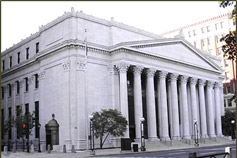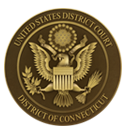United States District Judge for the District of Connecticut
Please take note of our updated location and contact information.
Staff Information

RICHARD C. LEE UNITED STATES COURTHOUSE
141 Church Street
New Haven, Connecticut 06510
Location: Courtroom 3
